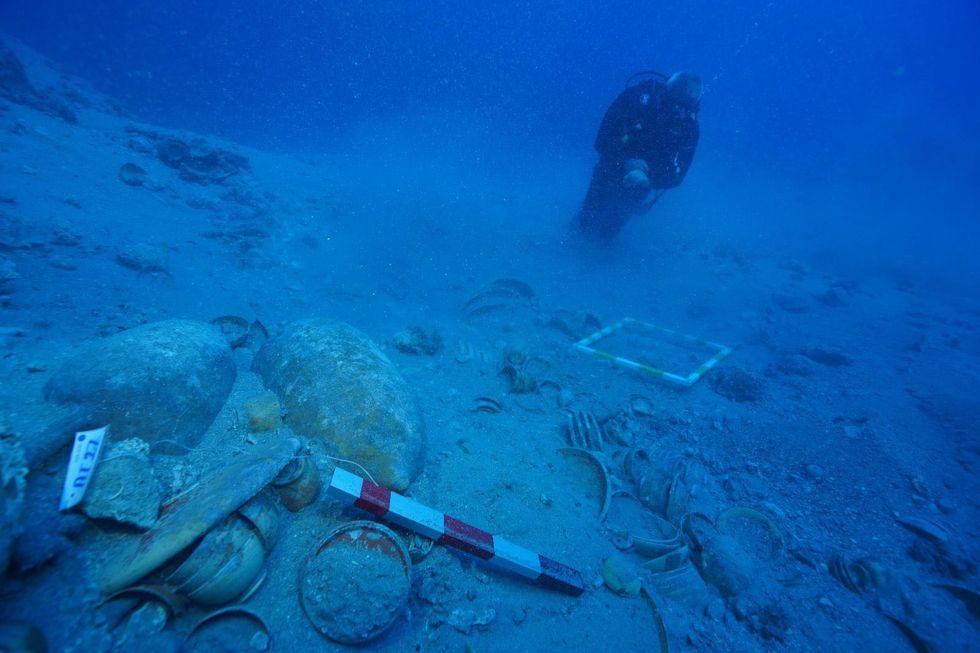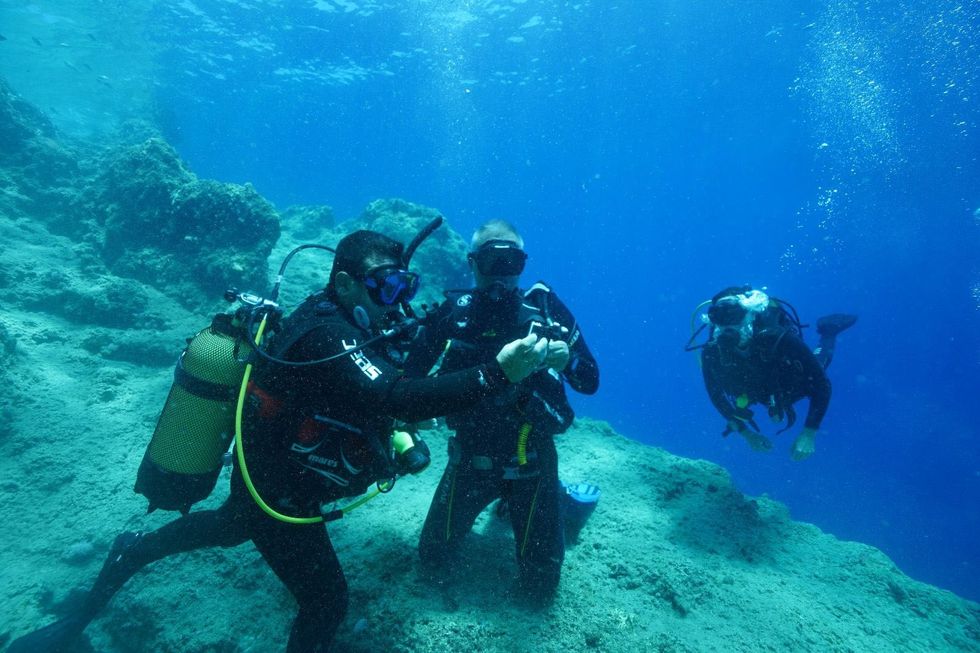Marine archaeologists have uncovered an extraordinary ancient shipwreck off Turkey's Adrasan coast, containing remarkably preserved ceramics from over 2,000 years ago.
The vessel, dating to the Late Hellenistic-Early Roman period, lies at depths of 120 to 150 feet.
The ship's cargo holds an astonishing collection of ceramic ware, bowls, plates, trays and pots, all maintaining their original stacked arrangement.
The artefacts remain in pristine condition, with their designs and colours intact after two millennia underwater.

This exceptional preservation resulted from a protective raw clay coating applied to the ceramics before shipping. The technique created a natural sealant that shielded the items from corrosion and marine erosion.
Turkish culture and tourism minister Mehmet Nuri Ersoy personally dived to inspect the wreck and expressed his amazement at the find. "We are facing a discovery like no other in the world," he stated.
"The ceramics embedded inside this cargo ship that is about two thousand years old have reached the present day without even spoiling their patterns," Minister Ersoy explained after examining the site.
He emphasised the broader significance of the discovery, saying: "This is an extremely valuable discovery not only for our country, but also in terms of world cultural heritage."
LATEST DEVELOPMENTS
- Archaeology breakthrough as 125,000-year-old pre-historic 'fat factory' discovered on lakeshore
- Shipwreck that once held treasure before being raided by pirates discovered off Madagascar coast
- Archaeology breakthrough as iron age settlement unearthed after swords found in Roman courtyard

An underwater inspection of what has been dubbed the "Ceramic Sink" confirmed the exceptional preservation of the artefacts.
The clay coating technique represents an unprecedented preservation method, having never before been documented on such an extensive scale in archaeological finds.
This innovative approach protected the cargo for over two millennia beneath the Mediterranean.The discovery provides unique insights into ancient maritime commerce and ceramic production methods.
The ship appears to have been transporting consumer goods, with the cargo's pristine arrangement offering researchers valuable information about ancient packaging and logistical practices.

The Adrasan wreck is one of more than 400 shipwrecks identified between the ancient city of Patara and Mersin.
This concentration of vessels demonstrates the extensive maritime trade networks that operated throughout the eastern Mediterranean during antiquity.
from GB News https://ift.tt/eq7N9og


0 Comments